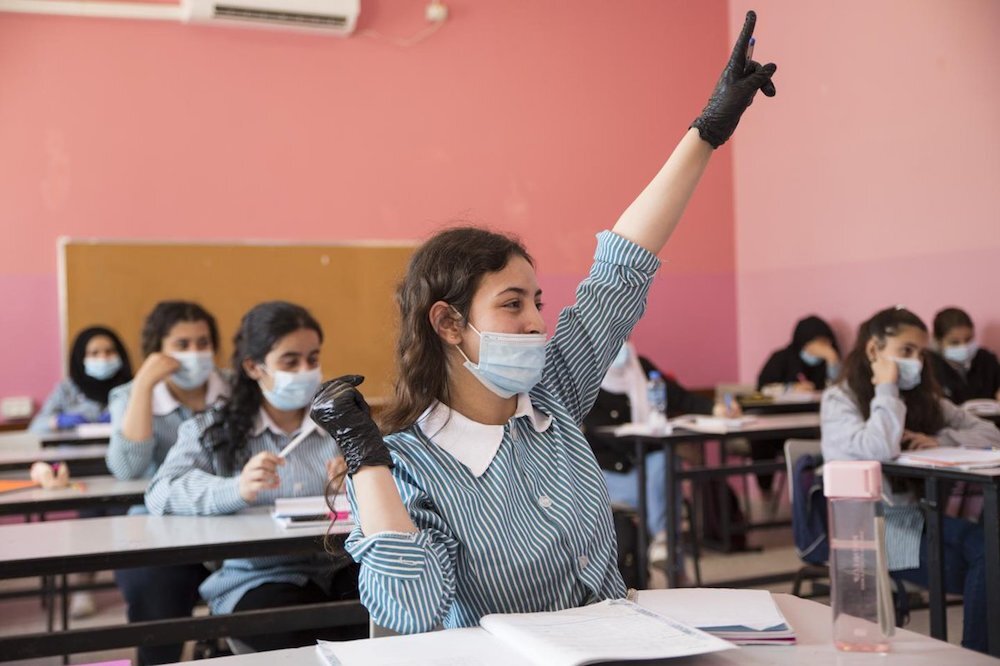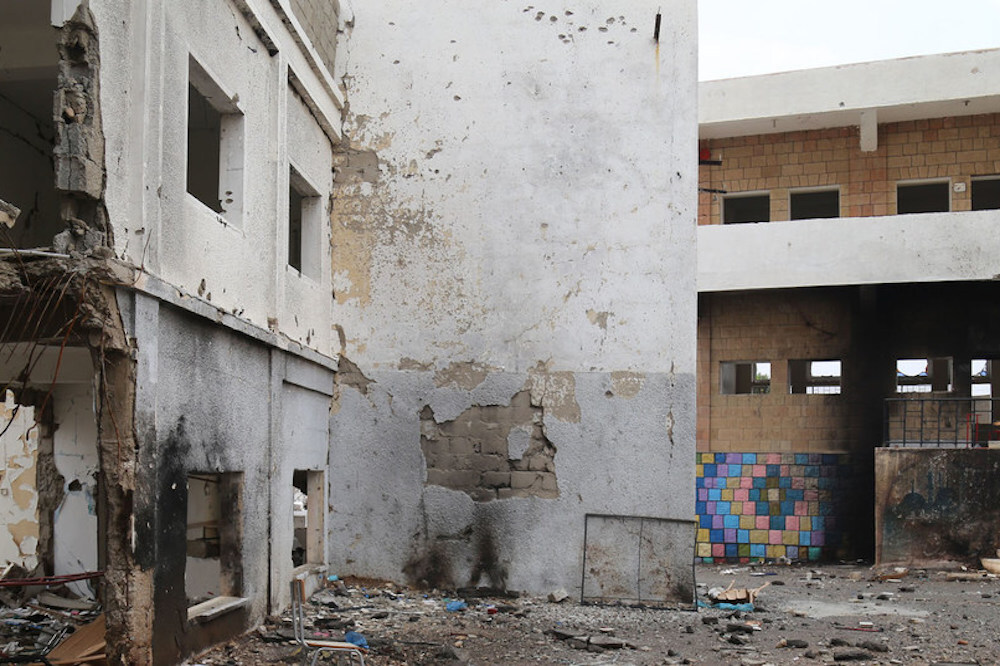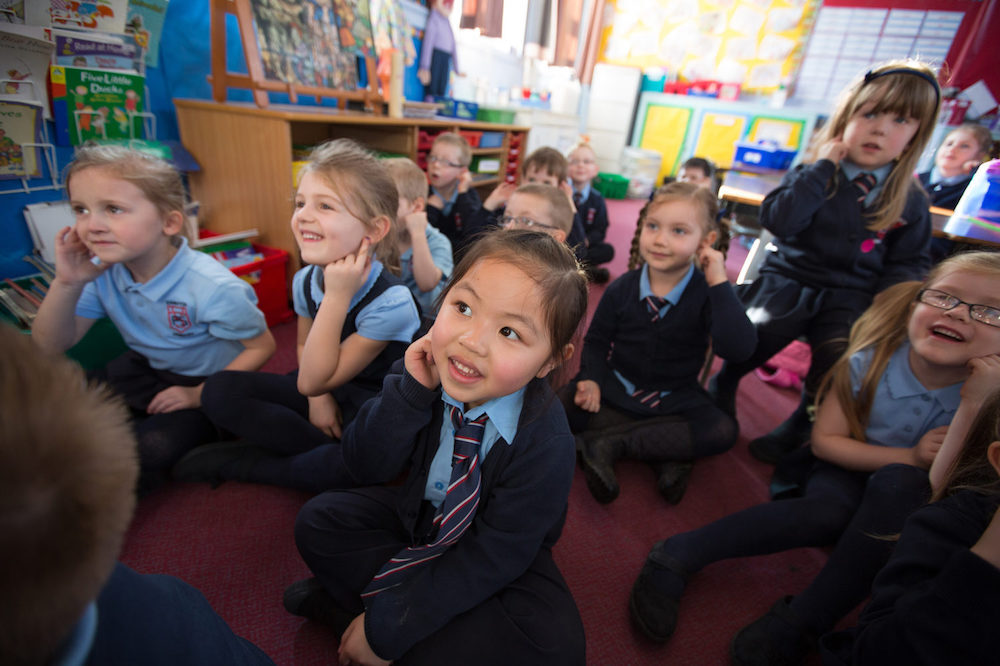
Five things you need to know this week about global education

Child marriage, Children in conflicts, Refugees and internally displaced people
Our roundup includes news of education help for vulnerable children affected by the pandemic and children injured just for going to school in war-torn Yemen.
Emergency education for millions during pandemic
The emergency responses of Education Cannot Wait (ECW) and its partners during the Covid-19 crisis have already reached more than nine million vulnerable children.
The global fund for education in emergencies released details of its actions this week, as the world marked the one-year anniversary of coronavirus being declared a pandemic.
Within days of that March 11 announcement last year, ECW allocated $23 million in emergency grants to support access to learning and protect the health and wellbeing of children living in emergencies and protracted crises. It quickly gave a second allocation of $22.4 million to focus on child and youth from refugee, internally displaced and host communities.
Amazing news! As we mark the one-year anniversary of the #COVID19 pandemic, @EduCannotWait and our partners have reached over 9M vulnerable children and youth. Join us in mobilizing more resources to leave no child behind. https://t.co/ElUPGmzJbb. #covidanniversary pic.twitter.com/aqxEsCdr6B
— Education Cannot Wait (@EduCannotWait) March 11, 2021
In total, ECW’s Covid-19 emergency grants are targeting 32 million vulnerable children and youth – more than half of them girls – in over 30 countries affected by armed conflict, forced displacement, climate-related disasters and other crises.
The grants will go to more than 80 United Nations agencies and NGOs working on the ground.
“During Covid-19, our investments have been life-sustaining for children and youth enduring crisis and conflict around the world,” said ECW Director Yasmine Sherif. “Despite the pandemic, our government partners, civil society and UN colleagues have been working hand in hand with communities to deliver remote learning and continued education in safe and protective learning environments.”
Bombing injures children leaving school

Many schools in Taiz City have been damaged as a result of the fighting (UNICEF )
Seven children were injured this week by an artillery shell attack as they left school in the Yemeni city of Taiz.
It came just three days after three children were killed and 10 others injured when shells hit their homes in the same area, said Save the Children.
Xavier Joubert, Save the Children’s Country Director in Yemen, said: “This is devastating news. We are witnessing another unacceptable increase in civilian casualties in the city of Taiz. After days of escalation of fighting in the area, children continue to pay the highest price in this war.”
Almost two million children in Yemen are out of school – half a million of them as a direct result of the conflict, which has damaged or destroyed one in five of the country’s schools. Theirworld was among more than 100 NGOS which last week condemned UK cuts in aid to Yemen.
English children back at school

Both primary and secondary schools have reopened across England (UN Photo)
Millions of English children and teenagers headed back to school on Monday for the first time in two months, having endured their second extended stretch of home learning because of a strict national lockdown.
In Wales, school children aged up to 11, plus older pupils who would normally sit exams, will return to class from Monday.
From next week, Portugal will reopen kindergartens, preschools and primary schools after a two-month lockdown. Greece said this week it plans to lift Covid-19 restrictions and open schools before the end of March.
Malta’s government ordered schools to close amid a surge in cases on the Mediterranean island. Estonia has switched all primary schools to online education.
Boost for girls' rights in Kenya

The pressures to undergo FGM can have a devastating impact on girl’s education (ActionAid)
Tribal leaders in northern Kenya have promised to end female genital mutilation (FGM) and child marriage in their communities, a step hailed by President Uhuru Kenyatta as “an important milestone” in boosting girls’ rights.
About 23% of Kenyan girls are married before they reach the legal age of 18, says UNICEF. Many are also subjected to FGM which is seen as a “rite of passage” before they wed.
Kenya outlawed the widely condemned practice a decade ago but it continues in some communities. Girls forced to marry at an early age can have their education disrupted because they are not permitted to return to school or because of early pregnancy.
Meanwhile, UNICEF warned that school closures and other effects of the pandemic could result in 10 million additional child marriages before the end of the decade, threatening years of progress in reducing the practice.
10-year conflict wrecks education
A decade of unrelenting violence and savage loss.
We asked 1,400 young Syrians about the impact of 10 years of crisis on their lives.
This is what they told us: pic.twitter.com/Eocj0Rh2k1
— ICRC (@ICRC) March 10, 2021
Ahead of the 10th anniversary of the Syria conflict, new research shows that almost four out of 10 Syrians aged 18 to 25 only got as far as primary school level, are illiterate or never went to school at all.
Syria once boasted a basic level of enrolment in education of almost 93%, with 2.8 million students enrolled in secondary education and more than 650,000 at university.
But 57% of the young Syrians surveyed for a report by the International Committee of the Red Cross said they have missed years of school or have never been at all.
In Syria, nearly four out of 10 young Syrians had their education interrupted because they were forced to flee. One in 10 saw their school close and one in seven gave up school because they had to work or could no longer afford tuition. In Lebanon, seven out of 10 young Syrians missed several years of school.
More news

